IN ENGLISH
Russians to Go, Azerbaijanis to Come
Objavljeno prije
14 godinana
Objavio:
Monitor onlineKumbor and Djukanovic’s New Partner
New Alliance: Milo Djukanovic, Milan Rocen and Ilhen Alijev
Russians to Go, Azerbaijanis to Come
Can Igor Luksic’s Government, which is expected to start negotiations with Brussels in June, afford itself another suspicious privatization and to bring to Kumbor, accompanied by all deficiencies of a tender process, the company with obvious transparency problems from the country that has its own corruption issues
Have Milo Djukanovic and Milan Rocen recently flown to Azerbaijan just to spread friendship among two countries? Or to exchange some experience with President Illhen Alijev, who succeeded his father and has everything under control in that oil and autocracy land? Or was it just business?
Is it accidental that, immediately after the visit of our government top to Baku, Azerbaijani national oil company SOCAR, which is actually run by President Alijev, suddenly appears as a main competitor for beautiful site on Montenegrin coastline – military base Kumbor, in the area protected by UNESCO. SOCAR’s bid for Kumbor was the first in rank, which made American consortium NCH, which also placed a bid, to appeal.
SOCAR was never in tourism business, and Montenegrin government opened bidding to turn Kumbor into an elite resort, not to turn it into oil refinery or platform. Great oil refineries usually do not develop tourist resorts, because they earn huge amount of in their prevailing activities.
Transparency International, the world’s famous organization for monitoring corruption, analyzed 45 world’s biggest oil companies, which produce 60 percent of world production, to see how they relate to corruption. SOCAR is on the very bottom of that list (see scheme below), at 43rs place which can show that SOCAR is more likely to encourage corruption rather than fighting it.
Fair investor is the one who publishes and implements a policy of zero tolerance to corruption and within its internal procedures shows relevant program for fighting corruption.
Ministry of Defense opened bidding couple of months ago for 90 – year lease and managing the facility of Kumbor military base named Orijen Battalion. It’s a unique site of unspoiled nature that spreads over 300 000 square meters of land and facilities.
As Monitor’s interviewees’ state, SOCAR placed a bid although it does not meet basic conditions for bidding. Azerbaijani oil giant did not buy tender documentation which was the precondition for bidding. Documentation was bought by the company Triangle which extended the deadline for submitting bids several times. Perhaps, Triangle waited agreement between Podgorica – Baku. Immediately after first extension of deadline for submitting bids, duo Djukanovic – Rocen left to Azerbaijan.
Company Triangle investments and development limited is so called Mickey Mouse company, absolutely unknown, registered in London few years ago with inscribed monetary capital of merely 100 pounds. Triangle’s owners are Gafar Gurbanov, Azerbaijani and Metiv Guvenev, British of Turkish origin. One condition to lease Kumbor was that only experienced hotel company could have bidden for it or the one that has Letter of Intent written by reputable hotel chain that would invest in this protected site.
During opening of bids, objection of the main competitor – American fund NCH that SOCAR cannot be qualified because it did not buy tender documentation, was dismissed as technical. President of tender committee is ex Minister of Defense Boro Vucinic.
Tender Committee stated on the website of Privatization Council that SOCAR Bidding was correct. According to such interpretation, Triangle was the company that bought tender documentation on behalf of SOCAR. There is no evidence to prove it, claim NCH in its objections submitted to Privatization Council on 29th March. Even if Triangle had Power of Attorney from SOCAR during tender documentation buy out, it would not help them to qualify because it was not possible for one company to buy documentation and the other one to bid.
SOCAR did not submitted along with its bid, a “Letter of Intent or Contract on managing with reputable company that runs at least two hotel resorts of international standard with at least 4+ stars”, which was clearly stated in tender propositions. However, SOCAR claims that it submitted a letter from company named Melia. But mentioned letter was not addressed to Azerbaijani Oil Company but to anonymous British Triangle.
On the other hand, Consortium NCH submitted a Letter of Intent from world famous hotel chain Marriot and as well from American hotel resorts Starwood that also run Sheraton Group. But that is not the end of illogical things. According to claims of the American representatives SOCAR did not submitted financial guarantees. NCH claims that legal representative of Tender Committee from Schonherr, during the opening of bids, not only that did not (although it is a common practice) inspect documents to establish that each required document was submitted but he also did not made any record of it. Does this mean that someone can subsequently enrich the bid?
First ranked Azerbaijani oil giant did not buy out tender documentation as precondition for bidding. Documentation was bought by anonymous company Triangle registered in Great Britain with inscribed monetary capital of 100 pounds, which extended deadline for bidding several times. Perhaps it was looking for a partner or some kind of the agreement from Podgorica-Baku. Duo Djukanovic – Rocen went to visit Azerbaijan immediately after first extension for bidding.
American consortium offered twice as much money for the lease, two EUR per square meter which is 27 million EUR more than bid from Azerbaijan, as calculated by Vijesti from Podgorica.
SOCAR offered considerably higher investments – 57, 6 million in first three years, total 258 million in eight years. NCH offers 36, 5 million in first three years, and 54 million in the following years, announcing more than 200 million for investments.
According to our sources, SOCAR does not have defined business plan and it is not clear in investment program how the funds will be spent. “SOCAR points out that it will invest 20 million EUR during the first year while the site is
being cleaned which costs only couple of million. The level of investments drops to 14 million in the third year when the resort is supposed to start developing. “It is not logical that the investor invests more in cleaning the area than in construction,” says Monitor’s associate included in business for this tender.
Perhaps the cleaning will cost more than construction because the best machines such BEMAX must be engaged. It is interesting that company that has no problems to invest 50 million EUR during three years offers only minimal allowed amount for lease. Amount for lease represents obligation that is not usually changed. However, investment program can be negotiated while obligations can be avoided. We have already seen in KAP and in other companies the manner of executing obligations from investment program.
SOCAR offer has no precisely defined ecology study, but it predicts creating of several artificial islands. It is obvious that such artificial islands seriously cause damage to natural surroundings in delicate eco system such as gorge of Kumbor.
SOCAR’s offer does not have precisely defined ecology study but it predicts creating of several artificial islands which would seriously cause damage to natural surroundings in delicate eco system such as gorge of Kumbor. Besides, construction of artificial islands is exorbitantly expensive, therefore this attractive suggestion sounds more like a dream, megalomanic project similar to previous projects we are familiar with from drafts of strategic partners such as: Hotels AS, Fjord, Cane’s ST Nicola.
In addition, construction of artificial islands is exorbitantly expensive, therefore this attractive suggestion sounds more like a dream, megalomanic project similar to previous projects we are familiar with from drafts of strategic partners such as: Hotels AS, Fjord, Cane’s ST Nicola. Construction of an artificial island is not in compliance with the state’s study draft of Sector 5 site published at Government’s web šage.
In the end, SOCAR did not define social program. That is another disadvantage in their offer in the country whose citizens suffered huge damages due to unsuccessful privatizations. 23 million EUR loan for KAP which has to be paid by everyone is only the beginning of the long agony, bankruptcy Montenegro will be found into for the reason of suspicious business and partnerships.
During the previous years, Government of Montenegro provided excuses stating that disinterest of West companies is the main resons for which Montenegrin factories were privatized by means of unknown off shore ways and tyconns from the East, like Deripaska. Government has a choice this time and they could change the structure of foreign investors. According to our sources, American diplomacy has already been negotiating with Montenegrin officials regarding Kumbor. Final decision of the Kumbor privatization should be brought by Privatization Council led by Prime Minister Igor Lukšić, in the moment when ship is already on sale.
Can Igor Luksic’s Government which is expected to start negotiations with Brussels in June, afford itself another suspicious privatization and to bring to Kumbor accompanied by all deficiencies of a tender process, the company with obvious transparency problems from the country that has its own corruption issues.
If that happens, in the midst of current privatization difficulties in Montenegro, Kumbor could become another case which confirms the rule – Djukanovic wants like-minded ones by his side and Luksic has the role of covering his jobs by democratic rhetoric. Djukanovic is only left with Azerbaijan, even Russians closed their door.
Monitor
6th April 2012
Komentari
IZDVOJENO
IN ENGLISH
GRENELL’S (UN)OFFICIAL VISIT TO WESTERN BALKANS: Backroom Deals in Montenegro Again
Objavljeno prije
2 mjesecana
18 Augusta, 2025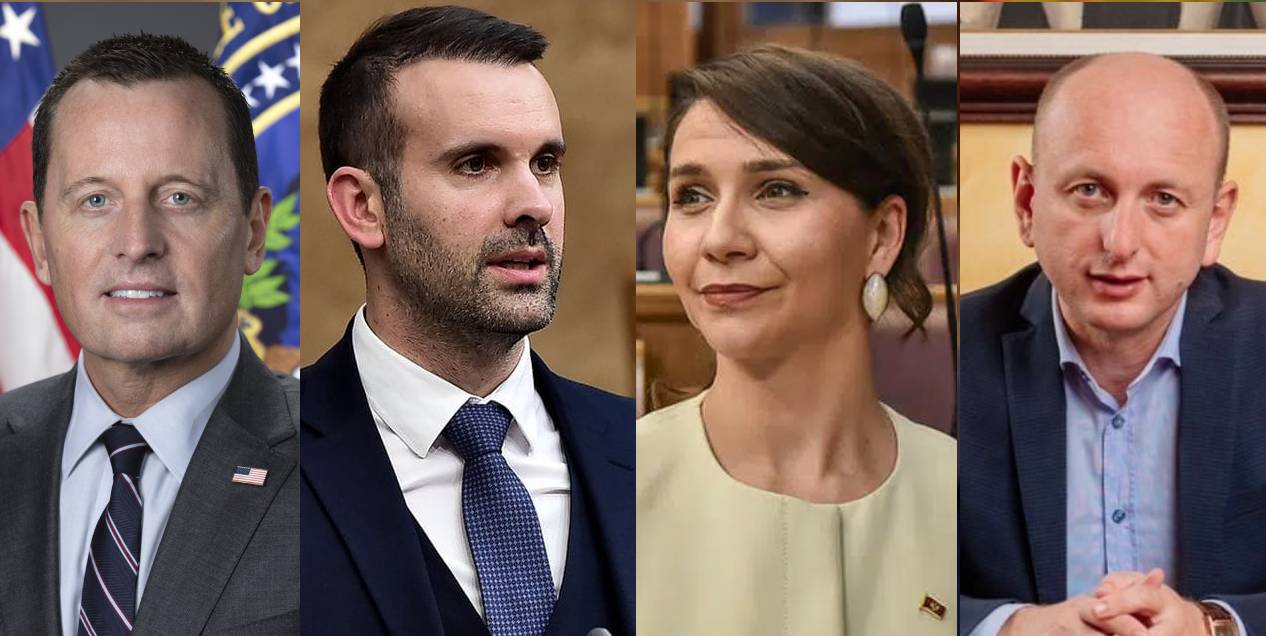
Richard Grenell, former U.S. envoy for the Serbia–Kosovo dialogue and once a powerful figure in Donald Trump’s first administration, reappeared in the Balkans this August on what was labeled an “unofficial visit.” His meetings and media appearances, however, looked suspiciously like an improvised diplomatic tour. Still, regional interlocutors who interacted with Grenell during his visit say that his vocabulary and tone sounded like that of an envoy on official mission, though he never formally claimed such a role. He even hinted, indirectly, that next year he would be back in a far more powerful position — effectively pitching himself
Last Thursday afternoon, Antena M reported that Milorad Dodik, the recently convicted president of Republika Srpska (RS), met with U.S. special presidential envoy Richard Grenell at the One and Only hotel in Portonovi, Montenegro. While authorities in Banja Luka did not confirm the meeting, it was notable that a rally organised by Dodik’s party (the Independent Social Democrats), originally planned as a protest related to his court verdict, was abruptly canceled. Antena M further reported that an unnamed Republican congresswoman was present at the meeting. No Montenegrin officials were involved or played any role in organising the encounter at the resort near the city of Herbage Novi.
However, Monitor received information, which could not be independently verified, suggesting that Grenell also met with Montenegro’s Prime Minister Milojko Spajic and Minister Majda Adzovic on the same day. Allegedly, discussions were uncomfortable and centred around recent turbulence related to airport concession deals in Montenegro. Officials close to the prime minister denied that any such meeting took place, while Minister Adzovic did not answer inquiries.
Earlier, on July 19, Nik Gjeljoshaj who simultaneously serves as Deputy Prime Minister, Economic Development Minister, and chair of the commission overseeing airport concessions informed the public that he had met with Grenell in Washington. In a statement from the U.S., he expressed gratitude to Grenell as “a great friend of the Balkan countries,” and requested support for the country’s accession toward European Union and stronger ties with the United States. During his U.S. visit, Gjeljoshaj claimed to have met in an official capacity with the FBI Director and his “senior leadership team.” Discussions were said to revolve around “the essential importance of upholding the rule of law to attract investments from Western countries and the U.S.” However, the Government publicly denied sending him and said that Gjeloshaj traveled to the U.S. privately. The Deputy PM did not provide any photographic evidence of these meetings. Before his trip, Mr Gjeloshaj was visibly dissatisfied with the tender outcome and the failure of the U.S.–Luxembourg bidder for the airport concessions that he was in favour of.
The day after the Portonovi meeting with Dodik, borba.me reported that on the evening of August 8 “in one Montenegrin coastal town”, Milan Knezevic, the leader of the Democratic People’s Party (DNP) met with Grenell. The meeting reportedly lasted nearly two hours, marked by open dialogue and exchange of of views.
The portal, considered an informal outlet of the pro-Serbia and pro-Russia “For the Future of Montenegro” (ZBCG) coalition, reported that Knezevic “detailed to Grenell the current political situation” – including internal relations in the government and various security, economic and international challenges. The interlocutors agreed “to continue communication and exchange of experiences,” with a prospect of a follow-up meeting in the future .
After departing Montenegro, Grenell continued on to Croatia. He shared on Instagram a photo of him posing with friends in the old town of Dubrovnik. The same day the Kosovar portal Gazeta Express reported that during his stay in the Western Balkans, Grenell met with Shkëlqim Devolli, a shareholder of the prestigious Devolli Corporation, founded by his father Ibrahim Devolli. Shkëlqim Devolli is a regular visitor to the U.S., often seen with influential figures like Republican senators Roger Wicker and Ted Cruz, Texas Governor Greg Abbott, and CIA Director John Ratcliffe.
Gazeta Express highlighted that the main topic of discussion was “stimulating economic growth in Kosovo through foreign investment.” It also noted that Grenell “confirmed the Trump administration’s continued commitment to supporting Kosovo and the Western Balkans,” thus promoting peace, stability, and prosperity. Just like with Knezevic and borba.me, the Gazeta Express account carries an official-sounding narrative, with the identical promise that the parties will “continue the dialogue and explore concrete ways to implement joint projects that would bring sustainable economic benefits and strengthen U.S.–Kosovo relations.” Although the location of the meeting was not disclosed, according to Monitor’s information, Grenell visited the Albanian seacoast prior to coming to Montenegro. In Albania he held a series of meetings with government officials and gave an interview to Klan Kosova – published on August 9.
Allegedly, Grenell was also seen in the region with Serbian Minister of Finance Sinisa Mali. It’s worth recalling that at the end of October 2023, Serbian President Aleksandar Vucic awarded Grenell the Order of the Serbian Flag, First Degree, for “outstanding merits in developing and strengthening peaceful cooperation and friendly relations between Serbia and the United States.” A similar decoration had been awarded to him by Kosovo three years earlier.
Still, the meetings with Albanian officials were not publicized—partly due to uncertainty over Grenell’s status, as he is on poor terms with key figures in President Trump’s administration—Secretary of State Marco Rubio and Trump’s chief of staff Susie Wiles. Grenell’s great influence during Trump’s first mandate is a thing of the past, at least for now, according to U.S. press reports. His actual job at this moment is acting director of the John F. Kennedy Center for the Performing Arts.
Regional interlocutors who were in Grenell’s circle during the visits say his vocabulary sounded as if he were on an official mission, even though he never formally said so. He also indirectly suggested that next year he would hold a significantly higher position than now, thus pitching himself in the region.
When asked whether Grenell was acting in an official capacity in Montenegro and whether it had mediated the meeting with Dodik, the U.S. Embassy in Podgorica referred Monitor to the State Department’s European desk. After the same inquiry, the State Department replied that Monitor should contact Grenell’s office directly. No response arrived prior to this publication. Unofficially, Washington sources told Monitor that the State Department had nothing to do with Grenell’s regional visit and that he was acting as a “freelance”.
Regardless of Grenell’s current status or his career’ trajectory, a big question remains as to how prepared Montenegro is for increasingly unpredictable international relations. So far, bilateral relations between Spajic’s government and the United States have not been impressive. A week ago, U.S. Secretary of State Rubio received Serbian Foreign Minister Marko Djuric—formerly Serbia’s ambassador in Washington, who built a strong Serbian caucus in the U.S. Congress. Rubio announced a “strategic dialogue with Serbia” for the end of the year. This is a process the State Department often carries out to strengthen bilateral relations. It entails high-level discussions on a wide spectrum of topics—defence, security, energy. Djuric emphasized that Serbia requested U.S. government support for issues important to Belgrade, and that his trip to Washington was significant for repositioning Serbia with the new administration. There’s no doubt that Montenegro is on Serbia’s top priorities list.
From the Montenegrin side, however, the current ambassador to the U.S. and the government seem largely indifferent to the disappearance of the Montenegrin caucus and show little effort in building strong ties with Trump’s administration. Previous head of mission in Washington, Nebojsa Todorovic, repeatedly briefed the government and foreign ministry well before the presidential elections that Trump’s return was inevitable and to prepare for it. Even President Jakov Milatovic’s visit to Ohio for the NATO Parliamentary Assembly meeting in Dayton (23-26 May), to mark 30 years of the Dayton Peace Agreement, was poorly prepared. Neither the embassy nor the foreign ministry knew that the U.S. state delegation would only be present on the first day in Dayton. Only thanks to intervention by the former ambassador did Milatovic’s delegation arrive a day earlier. That paved the way for Milatovic’s meeting with Deputy Secretary of State Christopher Landau—which, at such a gathering and outside the capital, carried considerable significance. Similar mistakes by the foreign ministry, ambassadors, and chargés d’affaires have also occurred in European capitals, with serious oversights about dates and availability of European officials.
The lack of serious diplomatic effort and narrow party interests could cost Montenegro dearly. Neighbouring countries, more skilled in lobbying, may shrewdly exploit this for their own interests—which are often at the expense of Montenegrin interests.
Jovo MARTINOVIĆ
Komentari
IN ENGLISH
Government Summons Ambassadors for Consultations and Instructions: A Foreign Policy Tightrope
Objavljeno prije
6 mjesecina
12 Aprila, 2025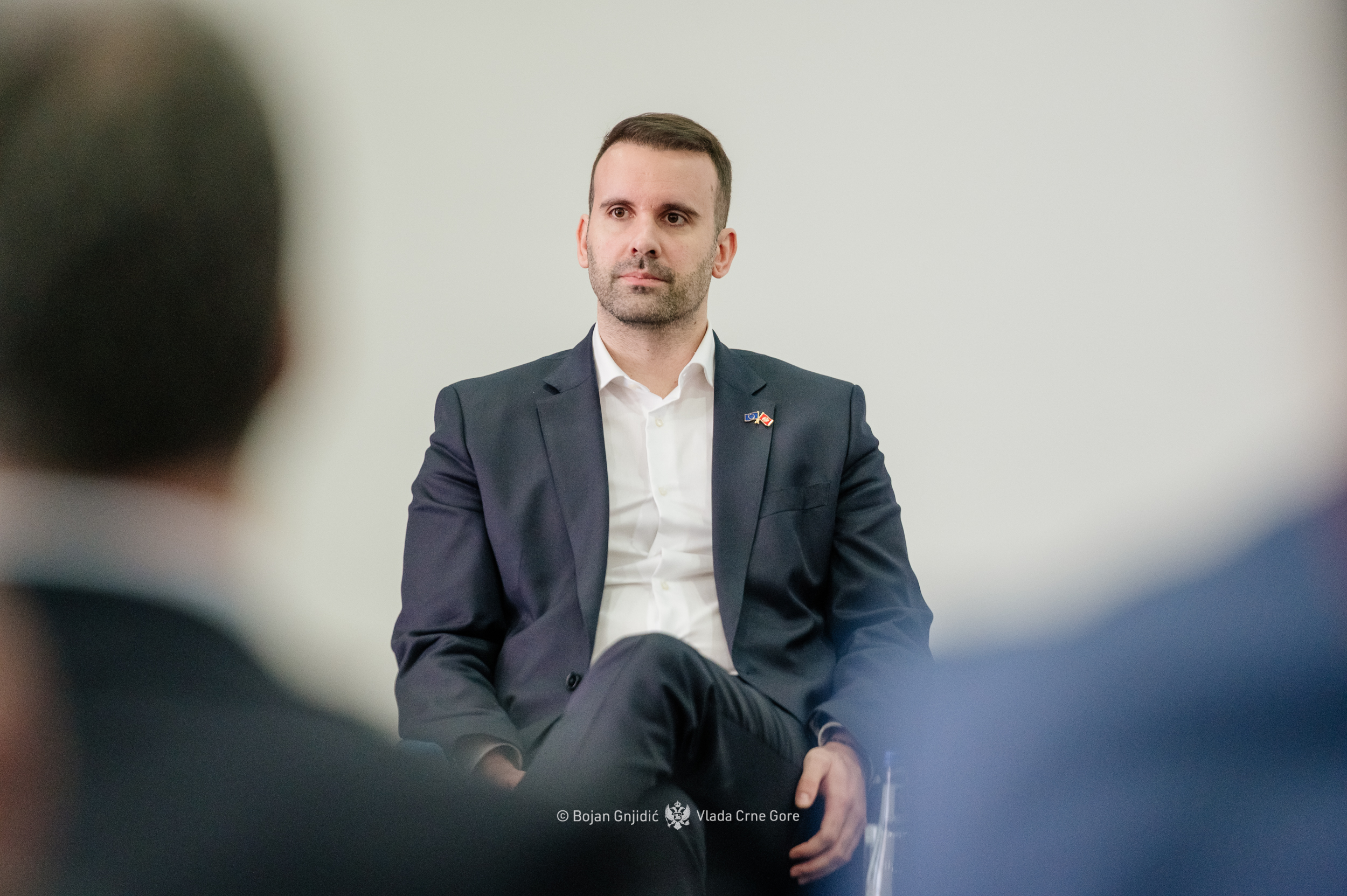
Prime Minister Milojko Spajic recently held a series of individual meetings with Montenegrin ambassadors—from Ukraine to Europe to the United States. Informal sources within the government say that during these meetings, the Prime Minister outlined a new geopolitical landscape shaped by Donald Trump’s return to power in the U.S. and evolving dynamics with the European Union
At the end of February, the Ministry of Foreign Affairs (MFA), led by Minister Ervin Ibrahimovic, summoned nearly all Montenegrin ambassadors stationed in Europe and the U.S. for urgent consultations, set to begin on March 6. The move sparked anxiety among some diplomats, who feared a repeat of the events of November 15, 2024, when three ambassadors were abruptly dismissed.
Monitor finds out that Spajić met separately with key diplomats, including Ukraine-based Borjanka Simicevic and U.S.-based Jovan Mirkovic. However, the concerns of mass dismissals proved unfounded. Instead, sources say the Prime Minister emphasized Montenegro’s continued commitment to the EU and instructed ambassadors to maintain a clear, pro-European stance. At the same time, he advised them against making any public criticisms of the United States or commenting on current rifts between the U.S. and its European allies.
Montenegro’s calibrated position became evident on March 11 at a meeting of top European military officials in Paris, where strategies for supporting Ukraine were discussed following Washington’s announcement of a suspension in military aid. The U.S. was not invited to the Parish meeting as the European leaders were keen to show they could step up independently if needed. Though an AP report initially stated that only Montenegro and Croatia, among NATO’s European members, failed to respond to the invitation, the Prime Minister’s Security and Defense Advisor, Todor Goranovic, told Radio Free Europe (RFE) that Montenegro would indeed participate. However, only the deputy military representative to NATO in Brussels attended because “Chief of General Staff Zoran Lazarevic was officially visiting Bulgaria at the time” – Goranovic explained.
Meanwhile, dissatisfaction is growing within Montenegro’s ruling coalition over Ambassador Mirkovic’s performance (or the lack thereof) in Washington. Tensions reportedly flared after a mid-February meeting with U.S. officials where he suggested that the fall of Serbian President Aleksandar Vucic could weaken some of his Montenegrin puppets. The details of the aforesaid meeting could not be independently confirmed. The subsequent report sent to Podgorica reportedly angered Spajic’s coalition partners from the former Democratic Front (DF). Although the DF was not directly mentioned in the report, its officials saw themselves as being referred to by the ambassador. One of them even retorted that those remarks would be a ground for the ambassador’s recall.
Discontent also emerged from the opposite ideological camp. Metropolitan Boris of the Montenegrin Orthodox Church (MOC) sent a protest letter to Minister Ibrahimovic, complaining that the embassy in Washington did not engage with the MOC delegation during their visit. The embassy, he wrote, failed to meet with them or assist in organizing meetings with U.S. officials. Furthermore, Metropolitan Boris complained that the embassy was “ignorant of some names and institutions that we wanted to reach out to”. He directly blamed the ambassador for the embassy’s dismissive stance.
As Monitor has previously reported, the embassy in Washington is increasingly out of sync with developments in the U.S. The once-prominent Montenegrin Caucus in Congress, which boasted 42 members under former ambassador Srdjan Darmanovic, has effectively dissolved. It’s now reduced to a single member—Congresswoman Chellie Pingree from Maine. Darmanovic had successfully lobbied to counter opposition to Montenegro’s NATO membership, despite concerns over ties of the Djukanović government with foreign criminal networks and Russian intelligence services.
Pingree reportedly sent multiple letters to the embassy criticizing the lack of engagement, but received no response. Monitor also reached out to her office twice for comment but had not received a reply at the time of publication.
Diplomatic affairs aren’t running smoothly in Europe either. In late January, the government approved the appointment of 14 new ambassadors. The list was coordinated with President Jakov Milatovic, whose signature is required for the appointments. Opposition parties and members of the pro-Serbian bloc raised objections, particularly over the inclusion of figures associated with the long-ruling Democratic Party of Socialists (DPS) and former foreign minister Milan Rocen.
One such appointee is Dragana Radulović, a longtime diplomat and former advisor to Prime Minister Dusko Markovic. She was posted to New York as Montenegro’s representative to the UN. She has been in diplomacy since 2000. Internal sources indicate that Veljko Milonjic initially hoped for the post in New York but was instead sent to Warsaw. Milonjic is remembered for his involvement in the so-called “cocaine affair” of 2015 when he was the head of Montenegro’s consulate in Munich. A truck from Munich carrying drugs under diplomatic seal was intercepted at the Austrian border. Though the Ministry of Foreign Affairs denied direct involvement, the incident cast a long shadow. Milonjic denied wrongdoing but was quietly recalled while the Consulate General in Munich was closed down. Milonjic was later appointed to a senior diplomatic post despite the scandal never being prosecuted. The truck driver, Sasha Mugosha, was sentenced to six years in prison. He was released after serving two and a half years and deported to Montenegro.
In March, the government announced that former German Bundestag member Holger Haibach had been appointed as a senior special advisor to Prime Minister Spajic, beginning January 1. Haibach will advise on regional relations in the Western Balkans and support EU accession efforts. His services will be funded by Germany’s Center for International Peace Operations (ZIF). While Haibach’s selection followed a public hiring process, sources in the diplomatic community question his current influence in Berlin. Haibach, a former CDU member of parliament, left office in 2011. Meanwhile, Veljko Kustrov, a Herzegovinian with close ties to Spajic, is considered his main point of contact in Germany.
Perhaps the most controversial diplomatic appointment so far is that of Dusanka Jeknic, a figure from the 1990s linked to the Djukanovic regime and repeatedly associated with cigarette smuggling. However, the Italian prosecutors could not present sufficient evidence against her in court. Jeknic was assigned to the embassy in Turkey after President Milatovic purchased property from her in Podgorica. Milatovic later claimed he had not been consulted on her appointment, stating that such decisions were under the MFA’s jurisdiction. He emphasized that his property purchase had been properly reported to Montenegro’s Agency for the Prevention of Corruption.
Previously, Milatovic had criticized the appointment of Predrag Drecun to lead Montenegro’s Investment Development Fund because of his close ties to the Djukanovic regime.
Montenegro is yet to drive a long and bumpy road before it gets a professional diplomatic network.
Jovo MARTINOVIĆ
Komentari
IN ENGLISH
TWILIGHT OF MONTENEGRIN INTERESTS IN AMERICA: Prayer Breakfast Instead of Real Diplomacy
Objavljeno prije
6 mjesecina
12 Aprila, 2025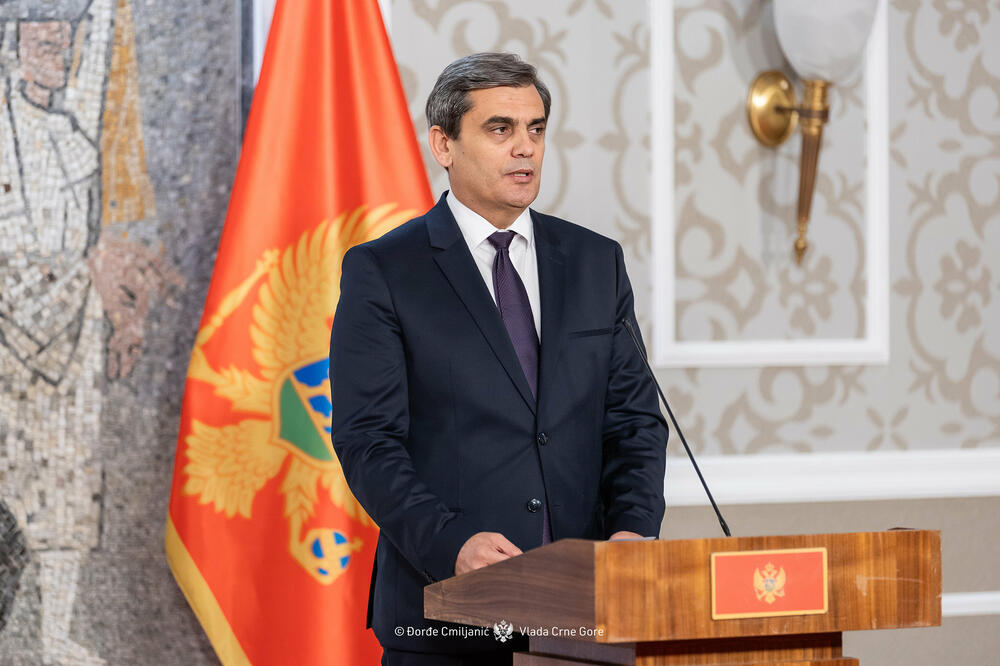
Aside from occasional trips and engagements with diaspora organizations, Montenegro shows little sign of having a coherent lobbying strategy in the United States. With the retirement of Congressman Doug Lamborn, the Montenegrin Congressional Caucus has dwindled to just one representative: Congresswoman Chellie Pingree from Maine
The 73rd annual National Prayer Breakfast in Washington recently took place, drawing more than three thousand leaders and prominent figures from politics and civil society from around the globe. Over the course of two days, participants had opportunities to network and exchange ideas at the Hilton Hotel, under the official patronage of the U.S. President.
Invitations were extended to a broad range of Montenegrin officials, including Prime Minister Milojko Spajic, Foreign Minister Ervin Ibrahimovic, Deputy Prime Minister for Economic Policy Nik Djeljoshaj, Minister of Urban Planning Slaven Radunovic, Minister of Transport Maja Vukicevic, and Minister for Human and Minority Rights Fatmir Djeka. Parliamentary invitees included many MPs, both from the opposition and the majority. Former President Milo Djukanovic and his close aide Branimir Gvozdenovic received invitations as well as several other ex officials. Also in attendance was Vijesti columnist and co-founder Zeljko Ivanovic—reportedly the only one whose travel wasn’t funded by taxpayers.
Branimir Gvozdenovic is often featured in pro-DPS (Democratic Party of Socialists) media as a regional liaison for the Prayer Breakfast. However, his name is absent from the official records of the event’s organizing foundation. Meanwhile, the Montenegrin delegation was accompanied by support staff including security, administrative personnel, and translators — necessary, since only Minister Vukicevic speaks fluent English. Translation was required for Djukanovic, Gvozdenovic and most MPs.
The cost of attending the Prayer Breakfast—including registration fees, three nights in a hotel, airfare, and daily allowances (currently €112 per day) — typically totals around $3,000 per person. When accompanying staff is added, the total bill reaches into the tens of thousands of euros. Out of the entire group, only Ministers Ibrahimović and Djeka were scheduled for official meetings at the U.S. State Department.
Minister for the Diaspora Adem Azemovic, representing the Bosniak Party, made his second trip to the U.S. in a month, accompanied by two associates. In late December, he met with Naser Nika, head of the Albanian-American Association of Staten Island. After the New Year he returned to meet him again. When asked why a second meeting was necessary, the Ministry explained that the first encounter had been brief, and the second was based on an official invitation. The association, which includes Albanian Montenegrins living in Staten Island, was praised for promoting Montenegro in New York.
Azemovic also visited the New York State Assembly, which is reportedly considering hosting Montenegro’s Independence Day celebration. His office described this as an opportunity to mark one of the country’s most significant holidays in a high-profile setting. Interestingly, Montenegro’s Independence Day was already celebrated at New York City Hall on May 23, 2024, in an event organized by the Albanian-American Association of Ulcinj. That celebration included Montenegro’s Consul Amer Cikotic and the Association’s president Dzelal Lanica. Nika had publicly criticized the event on Facebook, claiming that it misrepresented interethnic relations in Montenegro and highlighted Serbian political influence via Serbian President Vucic-backed factions.
Despite these diaspora engagements, there is little to suggest that Montenegro has any serious lobbying efforts in Washington—particularly with key decision-makers. Nebojsa Medojevic, leader of the Movement for Change (PZP), remarked that “Montenegro simply failed to grasp the magnitude and significance of political changes occurring in the U.S.”
“The current ambassador —Professor Jovan Mirković is openly anti-Trump and a personal ally of Aco and Milo Djukanovic” Medojević stated. “He has no meaningful contacts in Washington and no ideological alignment with the current direction of U.S. politics, so it’s unclear who or what he’s even representing.” He went on to question the competence and professionalism of the current government’s foreign policy team.
Interestingly, Nebojsa Todorovic, the former chargé d’affaires in Washington, had warned the Ministry of Foreign Affairs (MFA) and the government in late 2023 to prepare for a potential return of Donald Trump.
Since arriving in Washington in mid-September, Ambassador Mirkovic has maintained a notably low profile. His biography reveals he spent several years in Russia during the early 1990s—the same period when Milan Rocen was serving as minister-counselor at the Yugoslav embassy. Sources claim that Mirkovic has family ties in Russia and is known for his longstanding loyalty to the Djukanovic regime. Neither Djukanovic nor his Democratic Party of Socialists (DPS) have ever renounced their 2011 strategic cooperation agreement with Putin’s United Russia. In fact, the DPS publicly reaffirmed its pride in these ties in Parliament last year.
With the departure of Doug Lamborn—one of the Montenegrin Caucus’s co-chairs—the group now counts only a single member: Congresswoman Chellie Pingree. Meanwhile, Serbia has been actively growing its influence. Foreign Minister Marko Djuric, a former ambassador to Washington, has built up the Serbian Caucus to nearly 40 members. Djuric even boasted that Serbia, though not a NATO member, has stronger U.S. ties than Montenegro.
Some claim that Serbia pressured Podgorica through influential regional businessmen into sending a low-impact figure to Washington. The contrast with past Montenegrin diplomacy is stark: Under Ambassador Srdjan Darmanovic, the Montenegrin Caucus had grown to 42 members, surpassing even the Albanian caucus. Darmanovic worked closely with Congressman Mike Turner to gain U.S. support for NATO accession—despite Djukanovic’s regime then-notorious links to organized crime and Russian intelligence services.
Efforts to revive the caucus were briefly relaunched by Nebojsa Todorovic, who during his stint as chargé d’affaires in 2023 helped re-engage 10 U.S. lawmakers, including Turner and other influential committee chairs such as Michael McCaul and Robert Aderholt. For a brief period, Montenegro held a unique status in the Balkans, with three Congressional committee leaders in its caucus.
However, Todorovic has since been recalled, and with him, much of Montenegro’s presence in Washington has faded again into inertia.
This raises uncomfortable questions: Is Spajic’s government reverting to the old practice of conducting diplomacy through informal channels and business networks, as seen under Djukanovic and his top advisor Rocen? At the time, oligarchs like Oleg Deripaska and other Putin loyalists were reportedly enlisted to lobby for Montenegro in the West.
That line of approach came at a steep cost to the country—and its reputation.
Jovo MARTINOVIĆ
Komentari
Kolumne

Novi broj
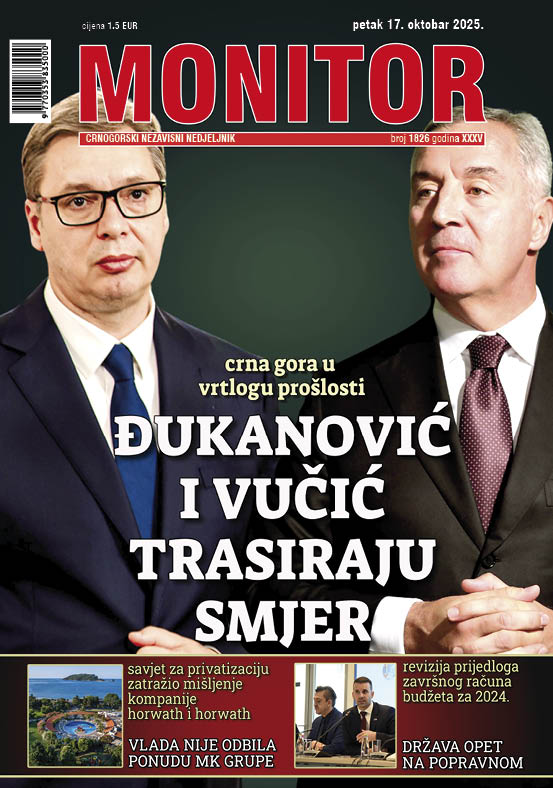

CRNA GORA U VRTLOGU PROŠLOSTI: Vučić i Đukanović trasiraju smjer

REVIZIJA PRIJEDLOGA ZAVRŠNOG RAČUNA BUDŽETA ZA 2024.: Država opet na popravnom

PROPAO JOŠ JEDAN POKUŠAJ IZBORA SUDIJA USTAVNOG SUDA: Trgovina u toku
Izdvajamo
-
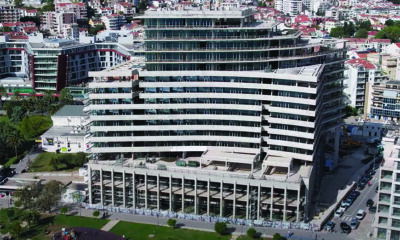
 DRUŠTVO3 sedmice
DRUŠTVO3 sedmiceBUDVANSKI SOKOLOVI ZAGLAVILI U NEBODERU: Hotel Falkons – napuštena betonska grdosija u centru grada
-

 DRUŠTVO3 sedmice
DRUŠTVO3 sedmiceVLADA DALA SAGLASNOST ZA IZGRADNJU SPOMENIKA MITROPOLITU AMFILOHIJU U KOLAŠINU: Đedo među partizanima
-
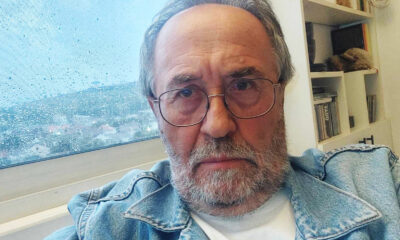
 INTERVJU3 sedmice
INTERVJU3 sedmiceDRAGOLJUB VUKOVIĆ, NOVINAR: Crna Gora bi se radije vratila u prošlost, nego suočila s njom
-
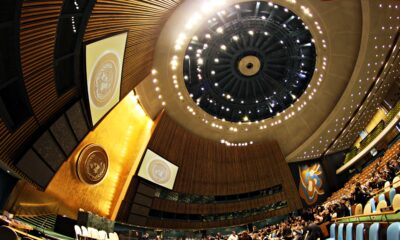
 Izdvojeno3 sedmice
Izdvojeno3 sedmiceDONALD TRAMP I EVROPA U GEOPOLITIČKOM RASKORAKU: Na zapadu nešto novo
-
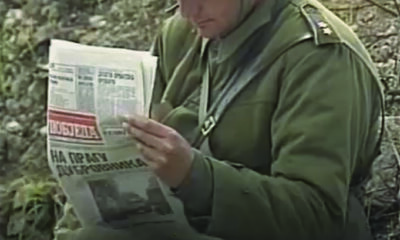
 FOKUS3 sedmice
FOKUS3 sedmiceRENESANSA RATNIH HUŠKAČA DEVEDESETIH: Kao novi
-

 ALTERVIZIJA3 sedmice
ALTERVIZIJA3 sedmiceUlazak u EU
-
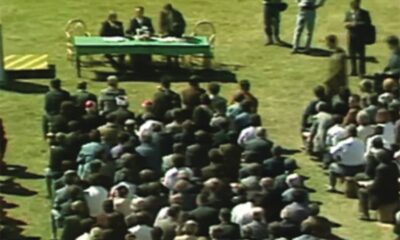
 Izdvojeno3 sedmice
Izdvojeno3 sedmiceEKOLOŠKA CRNA GORA, 34 GODINE KASNIJE: Obaveze iz poglavlja 27 čekaju, priroda nestaje
-
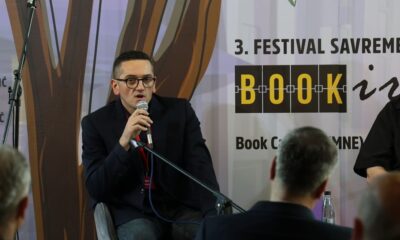
 INTERVJU3 sedmice
INTERVJU3 sedmiceVLADIMIR VOJINOVIĆ, GLAVI UREDNIK IZDAVAČKE KUĆE I PORTALA FOKALIZATOR: Pokoriti crnogorske medije, znači i totalno pokoriti Crnu Goru






